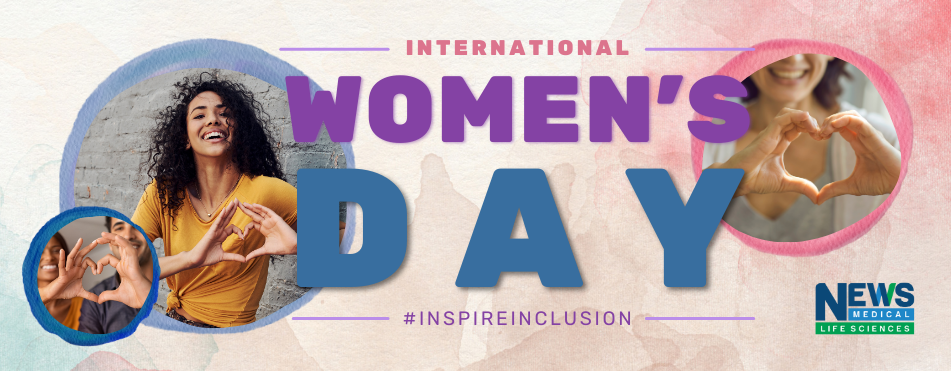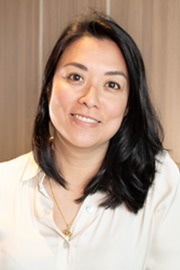As a medical student from a low-middle-income country (the Philippines), I was fascinated by neurology, where by taking a person's medical history and performing physical examinations, it was possible to diagnose with good accuracy a person's neurological disease. This is crucial in a country with few resources, such as diagnostic imaging.
During my neurology training, I noticed that women were usually more disabled or likely to die after a stroke, but I did not realize that this was a global issue. It wasn't until I started my Ph.D. at the University of Sydney and analyzed some of the stroke clinical trials at The George Institute and found evidence that women indeed had worse outcomes including worse quality of life after stroke compared to men.
These trials were run internationally, so not only was it happening in the Philippines, where I had first-hand experience with my patients, but also around the globe and even in high-income countries.
In your research on sex and gender differences within neurology, what have been some of the most surprising or enlightening findings regarding how neurological disorders affect men and women differently?
It still surprises me that in 2024, women and men still experience these differences. There are two things I want to highlight:
We know about biological differences in women and men and that these may affect how we respond to diseases like stroke. For example, younger women are more likely to have a stroke than younger men, and this is probably due (to some extent) to hypertensive disorders of pregnancy and gestational hypertension.
But the gender aspects are more difficult to explain because they may involve the role a woman plays in society – she may not immediately present to the hospital after a stroke (and thereby receive time-dependent life-saving medications) because she has caregiving responsibilities, or she may be older, living alone with no one to call the ambulance. Aside from the role women play in society, there may be differences in the way women and men are treated, or there may be implicit bias from healthcare professionals.
Participants enrolled in stroke clinical trials are not often representative of the population experiencing the disease in the community. Women, people of color, and individuals from culturally and linguistically diverse backgrounds (CALD) are under-enrolled relative to their burden of disease in stroke. Treatment effect estimates of many medical therapies, including stroke, have been largely derived from trial evidence generated from a Caucasian male population, limiting the generalisability of the safety and efficacy evidence.
Given the clear differences in how neurological conditions can manifest and impact men and women, how do you believe these insights should influence the development of treatments, patient care, and support systems in neurology?
Work in this field (mine and many others) suggests that in order to overcome these differences, we need to consider the collection, analysis, and reporting of sex and gender health data and include more diverse populations in our clinical trials in order to provide reliable evidence on how safe and effective new medications and devices are for everyone. There has also been evidence to suggest that when women lead clinical trials, the trial population is more inclusive, and data is more likely to be disaggregated by sex.

Image Credit: Tunatura/Shutterstock.com
What are some of the most significant challenges you face in researching women's brain health, and how do you propose the scientific community addresses these challenges to ensure more inclusive health outcomes?
If you had asked me the same question 4 years ago, I would have said that the biggest challenge at that time was convincing the medical and research community that sex and gender differences in stroke/cardiovascular disease is a real problem.
Now that all these mounting evidence cannot be ignored, the next challenge is to find strategies to narrow this health gap. One of the best ways of doing this is working with end-users—the people with lived experiences, health care professionals, advocacy groups, government, etc to find a solution that works for the people involved.
You advocate for the disaggregation of data by sex in medical research. Can you explain how this approach has influenced your research outcomes and why it's crucial for achieving gender equity in health care?
Gender equality is one of the UN Sustainable Development Goals (Sustainable Development Goal 5). Clinically meaningful sex and gender differences in screening, risk factor prevalence, health-seeking behavior, treatment, and prognosis are increasingly recognized across a range of non-communicable diseases, which confer the greatest health burden.
Why women and men's experiences and treatment differ for the same diseases, and how this links to socially embedded gender structures, is under-appreciated in medical research and clinical practice. By disaggregating data by sex and, where possible, gender, we are not only doing good science (Prof Londa Schiebinger's wise words Gendered Innovations | Stanford University), but we are expanding our knowledge of these differences into the health care system to improve clinical practice, medical research, health systems design, policy, and public health.
Your trial in Nigeria and Peru focuses on essential acute stroke care in low-resource settings. How do you see this work contributing to a more inclusive approach to global health, especially concerning women's health care in these regions?
This trial is funded by the World Heart Federation, and our intention was two-fold: to improve acute stroke care in low-resource settings and to build research capacity in the area. The COVID pandemic has impacted this project, and it is currently on hold as we work through logistical issues. If this trial has a positive outcome, then having clear guidelines on essential acute stroke treatments has the potential to eliminate implicit and explicit gender bias.
I am also working on another project that aims to improve the participation of women in stroke clinical trials. Ensuring that clinical trials include a balanced proportion of women and men and that key findings are interpreted separately by sex is crucial.
When women are under-represented in trials, there is a threat that treatment is not safe or effective and introduces the potential for unequal access to treatments. Our ongoing efforts will develop and evaluate inclusive and innovative recruitment strategies to improve the representation of women in stroke trials, making stroke treatment more accessible to all people.
As women, we need to be brave. Speak up and let your voice be heard and counted when you have something to say. You are important, and your voice matters.
Based on your experience and research findings, what policies or actions do you believe are essential to advance the inclusion of women's health needs in both national and international health agendas?
An important program of work at The George Institute for Global Health in collaboration with the Australian Human Rights Institute at the University of New South Wales in Sydney is an Australia-wide Call to Action to embed sex and gender analysis into medical research. This work has led to the formation of The Sex and Gender Sensitive Research Call to Action Group, which includes 11 universities across Australia, the UK, and the United States committing to analysing and reporting health data by sex.
A philanthropic group is currently funding a larger project aimed at translating the Call to Action paper. Some key wins of this project so far include mapping the key stakeholder organizations in Australia engaged in sex and gender research advocated for policy changes with the National Health and Medical Research Council and Medical Research Future Fund (the main health funding bodies in Australia) and through a co-design workshop with our group, the Association of Australian Medical Research Institutes (AAMRI), the peak body for medical research institutes across Australia, has produced a set of sex and gender policy recommendations for health and medical research.
Through these policy changes in different stakeholder groups, we hope that we will achieve critical mass in Australia to make the collection, analysis, and reporting of sex and gender health data the norm and not just nice to do.
This month, we will be launching Australia's new National Centre for Sex and Gender Equity in Health and Medicine, which will bring together researchers, policymakers, healthcare professionals, and consumer stakeholders with an interest in addressing the effects of biological sex and gender identify on health outcomes, enabling greater learning, collaboration, and impact. This Centre is a partnership between The George Institute for Global Health, the Australian Human Rights Institute at UNSW Sydney and Deakin University.
The center aims to develop effective strategies to prevent and treat the leading causes of death and disability for everyone; we need health and medical research that is inclusive and looks at how sex and gender affect different conditions.
Reflecting on this year's theme for International Women's Day, what does "Inspire Inclusion" mean to you personally and professionally, and how do you envision its implementation in the realm of brain health and beyond?

This year, the UN's theme is Count Her In: Invest in Women. Accelerate Progress. It talks a bit about economic empowerment but also provides equal opportunities to earn, learn, and lead. This is very relevant to our work on improving the participation of women in clinical trials. We want to be able to count women in by ensuring their health and medical data are captured; and are safe and effective.
Where can readers find more information?
About Cheryl Carcel
A/Prof Cheryl Carcel is a neurologist and the Head of the Brain Health Program at The George Institute for Global Health in Sydney, Australia.  She is a conjoint associate professor at University of New South Wales in Australia. She was selected as a World Heart Federation (WHF) Emerging Leader and a Stroke Society of Australasia Emerging Stroke Clinician and Scientist. Her most important life roles are being a mother of two young and active children and wife.
She is a conjoint associate professor at University of New South Wales in Australia. She was selected as a World Heart Federation (WHF) Emerging Leader and a Stroke Society of Australasia Emerging Stroke Clinician and Scientist. Her most important life roles are being a mother of two young and active children and wife.
Career highlights:
• Recent promotion to Associate Professor at University of New South Wales and Head of the Brain Health Program at The George Institute.
• Appointed as acting director of the Centre for Sex and Gender Equity in Health and Medicine- a national centre in Australia that will address sex and gender inequities through world-class research that considers how sex and gender impact health and medicine.
• Invited to be one of the keynote speakers in the European Stroke Organisation's Stroke Science Workshop last year. This is an important achievement as this workshop is a meeting on clinical and translational research aspects of stroke with a limited number of well-known stroke specialists as well as junior scientists. My invitation as a keynote speaker to this meeting signals that sex and gender differences should be considered front and centre in stroke.